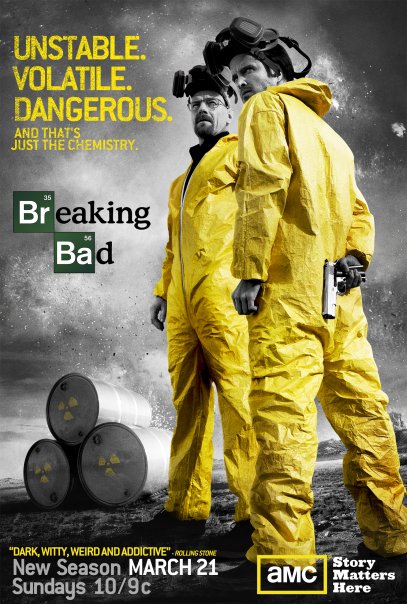When “Breaking Bad” first aired, producer Vince Gilligan explained to Chemical & Engineering News that he relied on the Internet and Wikipedia to look up scientific information for the show. Donna Nelson, a chemistry professor at the University of Oklahoma, saw Gilligan’s interview and was the only one who responded to Gilligan’s request for assistance. She soon became the science adviser for the hit AMC series. Nelson will speak Friday at Northwestern, but before her visit, she answered The Current’s questions.
The Current: How did you become involved with “Breaking Bad”?
Donna Nelson: I already knew that the scientific community … and so many other people have been very concerned about the way scientists and science are portrayed on television and in the movies. There’s this great effort to try to make the depiction more accurate. A lot of times we are portrayed as the evil scientist or the mad scientist or the bad scientist or the nerd scientist. I thought … here is a producer (Vince Gilligan) who is really interested in getting the science right and the story right, and that’s exactly what we need. It would build a bridge between the scientific community and the entertainment community, and it would help the entertainment community learn more about us. The next thing I knew, Vince Gilligan contacted me and said, “Sure, we would love for you to help out.”
The Current: Were you a fan of “Breaking Bad” before you joined their team?
Nelson: I had never watched it. The thing that motivated me was this was an opportunity to help a community. When I watched the show, I was initially put off by the subject material. Inside our chemical community, all of that is taboo, and we would never do anything to encourage students to do anything illegal. When I watched the show, I realized Vince Gilligan is portraying the main character, Walter White, in a way such that no student is going to watch that and then think, yeah, that’s the lifestyle I want. I felt comfortable with it at that point and I was happy to help them.
The Current: What’s your favorite part about advising for the show?
Nelson: I’ve learned so much about the entertainment industry. One thing that I think was very important, and critical to having a good relationship with the entertainment industry if you’re a scientist, is you have to have a respect for the art that they do. I respected them and they respected me. When I would do things like review pages from their script, I would look at it and I would remember those writers had written the words that they thought would have the optimal impact on the audience. The goal was to have a popular show. It was not a science feature show. It was a popular show that used science. When I read the script, I kept that in mind and I would change as few words as possible from their script just to get the science correct.
The Current: Why do you think it’s important to include science advisers on TV shows?
Nelson: It’s really important whenever you have a television show or a movie, you have to have a suspension of belief. They’re watching along and then there’s this huge faux pas committed, that suspension of belief is broken. The producers really do want to get the material presented on television or in the movies just as correct as possible, so that viewers will … stay immersed in the show from beginning to end. I think it’s important to scientists, because to us when we hear something not factual presented, it’s like fingernails on a blackboard.
The Current: Do you have any advice for students who want to pursue chemistry in the future?
Nelson: I’ve certainly enjoyed it, and being a professor, I’ve really enjoyed the autonomy. I’ve had the freedom to select projects and accept offers like this, and when you have that sort of freedom and you can do things like this, it really makes life fun.


